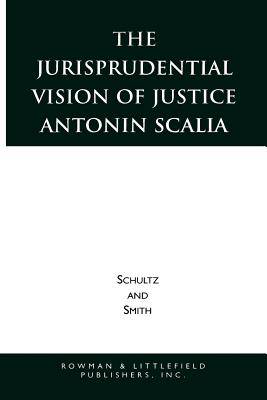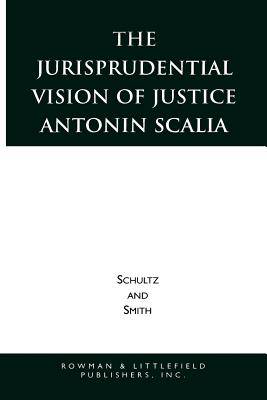
Bedankt voor het vertrouwen het afgelopen jaar! Om jou te bedanken bieden we GRATIS verzending (in België) aan op alles gedurende de hele maand januari.
- Afhalen na 1 uur in een winkel met voorraad
- In januari gratis thuislevering in België
- Ruim aanbod met 7 miljoen producten
Bedankt voor het vertrouwen het afgelopen jaar! Om jou te bedanken bieden we GRATIS verzending (in België) aan op alles gedurende de hele maand januari.
- Afhalen na 1 uur in een winkel met voorraad
- In januari gratis thuislevering in België
- Ruim aanbod met 7 miljoen producten
Zoeken
€ 94,95
+ 189 punten
Omschrijving
When Antonin Scalia was appointed to the Supreme Court in 1986, conservatives hoped he would become the intellectual leader of President Reagan's judicial counter-revolution. In this first book-length analysis of Scalia's jurisprudence, David A. Schultz and Christopher E. Smith argue that Scalia's impact has been neither what conservatives hoped nor what liberals feared. The authors examine Scalia's political and judicial philosophy and they outline the areas of the law that Scalia has most profoundly affected, particularly constitutional protections for property rights. Citing Scalia's use of judicial review to check legislative power and his attempts to limit several types of individual rights developed during the Warren and Burger Courts, the authors conclude that Scalia's decisions reflect an effort to create a post-Carolene Products jurisprudence and to form a new pattern of assumptions regarding the role of the Supreme Court in American society. This is essential reading for students, scholars, and anyone interested in the Supreme Court and constitutional law.
Specificaties
Betrokkenen
- Auteur(s):
- Uitgeverij:
Inhoud
- Aantal bladzijden:
- 256
- Taal:
- Engels
- Reeks:
Eigenschappen
- Productcode (EAN):
- 9780847681327
- Verschijningsdatum:
- 27/02/1996
- Uitvoering:
- Paperback
- Formaat:
- Trade paperback (VS)
- Afmetingen:
- 149 mm x 226 mm
- Gewicht:
- 358 g

Alleen bij Standaard Boekhandel
+ 189 punten op je klantenkaart van Standaard Boekhandel
Beoordelingen
We publiceren alleen reviews die voldoen aan de voorwaarden voor reviews. Bekijk onze voorwaarden voor reviews.









